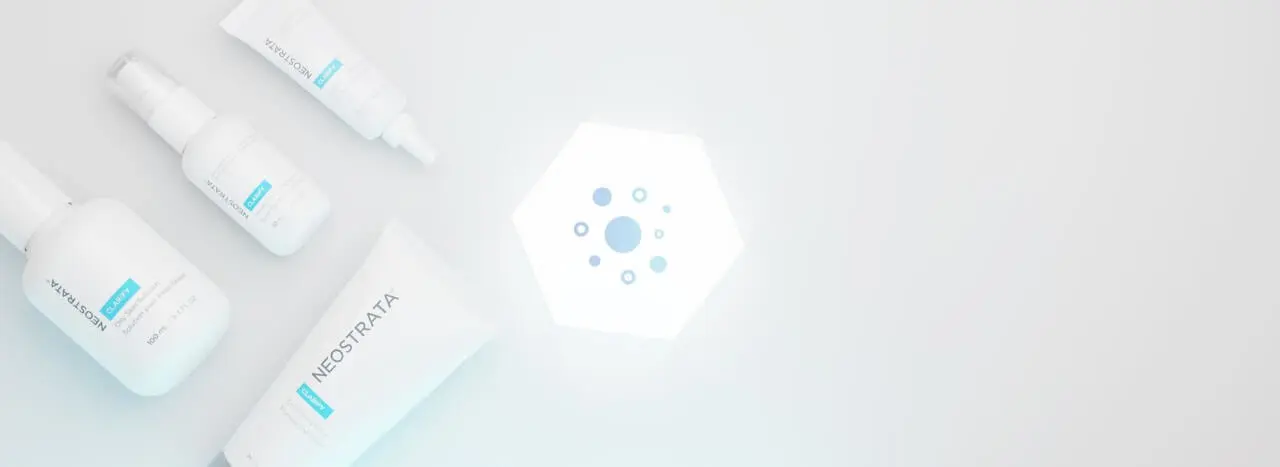WHAT CAUSES ADULT ACNE & BLEMISHES?
Though frustrating, it’s not uncommon to continue to get acne well into your 30s, 40s and beyond, or even to get acne for the first time in adulthood. Dermatologists call this "adult-onset acne." It’s more common in women than men and always starts with a clogged pore which may be linked to one more of the following causative factors:

Fluctuating hormone levels: Women often experience fluctuating hormones around their periods, during pregnancy, peri-menopause and menopause or after discontinuing (or starting) birth control pills. A hormone imbalance can trigger breakouts.

Stress: When we’re stressed, our bodies produce more androgens—a type of hormone that stimulates the oil glands and hair follicles in the skin, which can lead to acne.

Family history: Don’t blame your parents, but research shows some people may have a genetic predisposition for acne.

Hair and skin care products: If you have adult acne, make sure your cleanser, moisturizer and sunscreen are labelled non-comedogenic and oil-free, so they don’t clog pores.

Medication side effect: Acne can be a side effect of some medicines. If you suspect that a medicine is triggering your acne or making it worse, continue taking the medicine—but talk to the doctor who prescribed it.

Undiagnosed medical condition: Sometimes, acne is a sign of an underlying medical condition. Once the medical condition is diagnosed and treated, the acne often clears.
HOW TO GET RID OF ACNE & BLEMISHES
Adult acne can be incredibly frustrating, but there are effective treatments available. Here are a few tips from Dermatologists to keep pores clear and free of blemishes:

Choose products for acne-prone skin. Look for non-comedogenic (meaning they won’t clog pores to start acne) and oil-free on the packaging. Products that exfoliate the skin’s surface help keep pores clear.

Know your acne ingredients. Acne treatments target the different causes of acne. Benzoyl peroxide decreases P. acnes bacteria which can grow after the pore is clogged; salicylic acid unclogs pores to keep them clear; and retinoids unclog pores and reduce oiliness.

Follow directions. How much you use and how often you use it can make a big difference. Using too little could be the reason you still have acne but using too much can irritate skin further.

Don’t overwash or scrub your face. Dermatologists recommend gently washing your face when you wake up, when you’re ready to go to bed, and if your face gets sweaty. Scrubbing or washing more often and drying skin out can actually make your acne worse. If your skin senses it’s dry, it will produce more oil.

Spread acne medication on all acne-prone skin, not just your blemishes. Applying a thin layer on your acne-prone skin helps treat existing acne and prevent new breakouts.

Give your treatment a chance. Acne treatments take time to work. You may see improvement in 4 to 6 weeks, but it can take months or longer to see clearing.
A FEW MORE TIPS TO PREVENT ACNE & BLEMISHES

Try not to touch your face throughout the day. Resist picking and popping your acne—it can lead to scarring.

Wash hands frequently, especially before applying lotions, creams, or makeup.

Always remove makeup before going to bed.

Dead skin cells, bacteria, and dirt tend to build up on sheets, pillowcases, hats and glasses, which can clog pores.

Keep skin hydrated to prevent rebound oil production.

Choose makeup for sensitive skin and avoid oil-based products.

Avoid direct sun exposure— it can cause the skin to produce more sebum. Certain acne medications can also increase the risk of sunburn.
